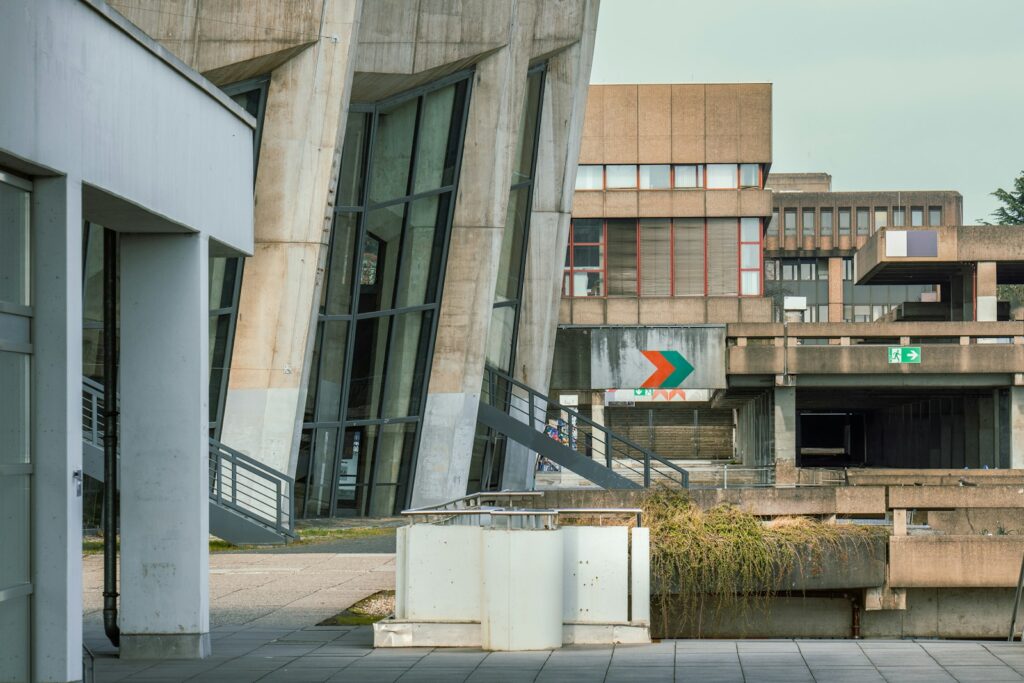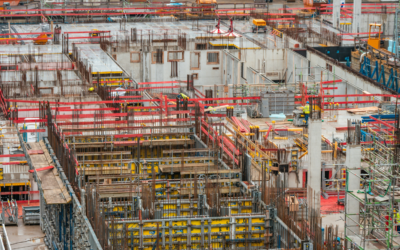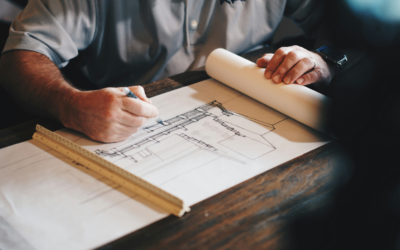Real estate development, also known as property development, is a crucial pillar in the construction of thriving communities and commercial hubs. From creating single-family homes to commercial office spaces, this field shapes our cities and plays a significant role in economic development. Whether you are looking to better understand real estate development, start your career as a developer, or find a trusted partner for development projects, this guide is for you.
South Coast Improvement has built a reputation as a leading real estate developer, known for expert craftsmanship, client satisfaction, and innovative services like their unique Design-Build Service Package. Partnering with them could be the move that elevates your projects to the next level.
But first, let’s break down everything you need to know about becoming a real estate developer and understanding the development process.
What is a Real Estate Developer?
A real estate developer is someone who transforms ideas into tangible properties. Developers manage and coordinate every aspect of a development project—from site selection and land acquisition to financing, construction, and final delivery. They develop projects from conception to completion, coordinating all necessary activities throughout the entire process. Their responsibilities often span both residential real estate development and commercial properties.
Whether it’s raw land being developed into apartment complexes or industrial spaces, real estate developers play a crucial role in creating new opportunities for individuals, businesses, and communities.
The Role and Responsibilities
The primary responsibilities of a real estate developer include:
- Conducting market analysis to identify opportunities.
- Planning and managing land acquisition and site selection.
- Coordinating with architects, builders, and construction teams.
- Overseeing the construction process, ensuring each phase is completed on schedule and within budget.
- Managing project financing and reducing financial risk.
- Ensuring compliance with regulations and permits during the process.
From building single-family homes to transforming urban spaces, developers are key players in shaping the built environment.
Understanding Residential Real Estate Development
Residential real estate development focuses on creating spaces where people live, ranging from single-family homes to multi-unit apartment complexes.
This process typically involves a series of intricate steps, including acquiring land, securing permits, designing the structure, and managing construction. Success in residential development requires a deep understanding of market trends, zoning laws, and community needs, as well as knowledge and experience in related industries such as construction and finance.
Partnering with an experienced team, like South Coast Improvement, ensures that all these elements are expertly managed, leading to residential projects that meet both aesthetic and functional goals.
Understanding Commercial Real Estate Development
Commercial real estate development is a complex and multifaceted process that differs significantly from residential projects. It involves transforming a concept into a functional space tailored for business purposes, such as office buildings, retail centers, warehouses, or mixed-use facilities.
Key steps in commercial development include conducting market analysis, securing financing, obtaining zoning approvals, and creating designs that meet the needs of prospective tenants while adhering to local regulations. Effective commercial real estate developers must also consider factors like location, accessibility, and scalability to ensure long-term success.
Partnering with knowledgeable professionals and leveraging industry expertise is essential, including collaboration with other professionals such as investors, architects, and consultants, for navigating the intricacies of commercial development and delivering projects that drive economic growth and meet tenant demands.
Understanding Land Development
Understanding land development is a critical aspect of commercial real estate that involves a multifaceted approach to transforming raw land into functional and profitable spaces. This process begins with a comprehensive site analysis, which includes evaluating topography, soil quality, drainage, and environmental impact. Developers must also consider zoning laws, land use restrictions, and local government policies to ensure compliance and feasibility.
Strategic planning and collaboration with engineers, architects, and urban planners are essential for creating sustainable and efficient layouts. Additionally, anticipating future growth and infrastructure needs plays a vital role in maximizing the value and utility of the developed land, making it a keystone in successful real estate projects.
Types of Development Projects
Real estate development is a dynamic industry that covers a wide range of project types, each with its own set of challenges, opportunities, and requirements. Understanding these different categories is essential for real estate developers, property developers, and anyone involved in the development process.
Residential Real Estate Development:Residential real estate development focuses on creating spaces where people live, such as single-family homes, apartment complexes, condominiums, and townhouses. These projects are often managed by real estate brokers and developed by a real estate firm with expertise in local market trends and community needs. Successful residential developments require a deep understanding of zoning regulations, buyer preferences, and the financing options available for both developers and end-users.
Commercial development:Commercial development is centered on properties designed for business use, including office buildings, shopping centers, hotels, and retail spaces. These projects demand thorough market analysis to assess demand, location viability, and potential financial risk. Real estate developers working in this sector must navigate complex regulatory environments and create spaces that attract tenants and investors, ensuring long-term profitability and adaptability to changing industry trends.
Industrial Development:Industrial development involves the creation of properties such as warehouses, manufacturing plants, and distribution centers. These industrial spaces are vital for supporting economic growth and often require ground-up development on raw land. Developers must consider factors like transportation access, infrastructure, and scalability, as well as conduct detailed financial analysis to manage costs and mitigate risks associated with large-scale industrial projects.
Mixed-Use Development:Mixed-use development combines residential, commercial, and sometimes industrial elements within a single project. This approach allows property developers to create vibrant, multi-functional communities that offer a blend of living, working, and recreational spaces. Mixed-use projects require careful planning, innovative design, and a comprehensive understanding of how different property types interact to meet the needs of diverse users.
Land Development:Land development is the process of preparing raw land for future construction. This includes tasks such as zoning, infrastructure improvements, and parceling land for sale or future development projects. Land development is a crucial first step in the real estate development process, requiring developers to work closely with local authorities, engineers, and planners to ensure the land is suitable and ready for building.
Niche Specializations:Many developers choose to specialize in niche markets, such as luxury residential developments, senior living communities, or beach-side properties. These specialized projects demand in-depth knowledge of specific market segments, unique design considerations, and tailored marketing strategies to attract the right buyers or tenants.
Each type of development project comes with its own set of planning, regulatory, and financing challenges. For real estate developers and development firms, staying informed about industry trends, conducting thorough market research, and leveraging specialized knowledge are key to successfully managing and delivering diverse development projects. Whether working on residential real estate, commercial properties, or industrial spaces, understanding the nuances of each project type is essential for long-term success in the real estate industry.
How to Become a Real Estate Developer
While there’s no singular pathway to becoming a real estate developer, many successful developers hold degrees in related fields like business, finance, or urban planning. A bachelor’s degree provides foundational knowledge that includes financial analysis, project management, and construction processes. As in most industries, practical experience and ongoing education are crucial for building expertise and advancing in real estate development.
Key skills to acquire include:
- Strong communication for coordinating with stakeholders.
- Financial literacy for budgeting and cost projections.
- Problem-solving to address unexpected project challenges.
- Knowledge of market trends for profitable decision-making.
How to Get Started on Development Projects
- Gain Experience: Start with entry-level roles within construction companies, design firms, or property management firms to gain hands-on experience in the industry.
- Build a Professional Network: The real estate industry thrives on connections. Join professional associations like the National Association of Realtors (NAR) or Urban Land Institute (ULI) and attend industry events to meet mentors and potential collaborators.
- Seeking mentorship: Actively seeking mentorship from experienced industry professionals can accelerate your learning and provide valuable insights into project timelines, construction coordination, and managing financial risk. This guidance not only enhances your understanding but also supports your career growth in real estate development by opening up new opportunities and increasing your job prospects.
- Start Small: Begin with modest projects like small residential developments or renovating office buildings to build a portfolio and credibility.
- Develop a Niche: Focus on specialization, whether in residential development, industrial spaces, or high-end commercial properties.

Photo by Jakub Żerdzicki on Unsplash
Real Estate Developer Job Overview
A Day in the Life
A real estate developer’s days are dynamic and varied, often balancing between planning meetings, site visits, and budget reviews. Tasks may include:
- Communicating with architects and construction teams.
- Conducting zoning and site evaluations for land development.
- Creating and revising project timelines.
- Overseeing market research to align projects with real-world demand.
Project Management | Become a Project Manager
Developers are essentially project managers. They coordinate all the moving parts of a project to ensure everything is completed on time and within budget. Great developers foster collaboration, enabling their development team to overcome challenges and deliver exceptional results.
Do Real Estate Developers Make Money?
Yes, but the earning potential in real estate development depends on multiple factors, including the scale of the project, market conditions, and the developer’s expertise.
What Determines Profitability?
- Market Research: Developers who invest in thorough research often identify the most lucrative opportunities.
- Strong Networks: Experienced developers with wide professional networks secure better financing and partnerships.
- Portfolio Diversity: Balancing residential real estate with commercial or industrial projects lessens financial risk while increasing revenue streams.
Development Company Success Stories
- High Line, NYC turned an abandoned railway into a public park, boosting local property values.
- Hudson Yards, NYC, represents a groundbreaking mixed-use project, blending housing, retail, and offices into one thriving hub.
- The Shard, London introduced architectural innovation, adding prominence to London’s skyline while revitalizing its surroundings.
These projects demonstrate how innovative thinking and market alignment lead to profitability and community enrichment.
The Real Estate Development Process | Key Stages in the Process
- Land Acquisition and Market Research: Developers often start with raw land, conducting site selection and determining legal and financial feasibility. Detailed market analysis ensures the proposed development matches demand.
- Financial Analysis: Before committing to a development, developers calculate costs, project expected revenue, and assess risks.
- Construction Phase: This involves working closely with construction managers, resolving challenges, and ensuring the project adheres to strict timelines.
- Marketing and Sales: Once completed, properties are marketed and sold to businesses or end-users, with real estate brokers often playing a vital role in connecting buyers with the finished project.
Why South Coast Improvement is Your Trusted Partner To Your Development Team
Whether it’s navigating construction challenges or delivering stunning residential real estate development, South Coast Improvement offers unmatched expertise.
Our Professional Network Has Exceptional Services and Accountability
- Design-Build Service Package eliminates communication gaps between designers and builders, creating one point of contact for seamless execution.
- Proven track record in projects like Atria Merrimack Place ($18M) and Fresenius Kidney Care ($1.6M).
Client-Centric Approach
South Coast Improvement values client satisfaction above all. They prioritize your goals with proactive project management and solid accountability.
Learn more about their tailored approach to development projects by contacting their team today.

Photo by Joel Filipe on Unsplash
Take Your Next Step in Real Estate Development
Real estate development offers endless opportunities, whether you’re aspiring to become a developer, exploring investment options, or searching for a reliable partner like South Coast Improvement.
Transforming visions into reality takes expertise, and South Coast Improvement is ready to make it happen. Contact them today to discuss your next steps and unlock the potential of your project.
Learn More About Real Estate Development
To deepen your understanding of real estate development, explore the following resources:
- Urban Land Institute (ULI) – ULI provides research, insights, and education on sustainable urban development and real estate practices for seasoned professionals.
- National Association of Realtors (NAR) – The NAR offers industry insights, market data, and development trends for real estate professionals.
- American Planning Association (APA) – A valuable resource for topics on urban planning, zoning laws, and community development, many developers use this for clear communication with laws and understanding.
- International Council of Shopping Centers (ICSC) – ICSC focuses on commercial real estate and retail development, with reports and events for professionals.
- Real Estate Development Principles and Process (Book) – This comprehensive guide covers foundational principles, case studies, and strategies for successful development projects.
- The Geography of Urban Transportation (Book) – An in-depth exploration of transportation’s role in urban design, economic development, and sustainability.
- American Society of Landscape Architects (ASLA) – Focused on landscape architecture, ASLA delivers resources related to sustainable outdoor spaces and urban greening.
These platforms and resources collectively provide actionable insights and expert knowledge essential for anyone interested in the nuances of real estate development.
View Our Work
Aspen Dental
Partnering with The Aspen Group on the construction of a new Aspen Dental facility that’s functional & welcoming for patients & staff alike. South Coast Improvement Company was awarded the construction of a new Aspen Dental facility in Killingly, CT. The...
Springhouse Senior Living – HumanGood
Designed to enhance comfort & functionality. South Coast Improvement company was hired by HumanGood for an interior and exterior renovation at Springhouse Senior Living. Our skilled teamtransformed the 2nd through 5th floor common areas into brighter, more...






